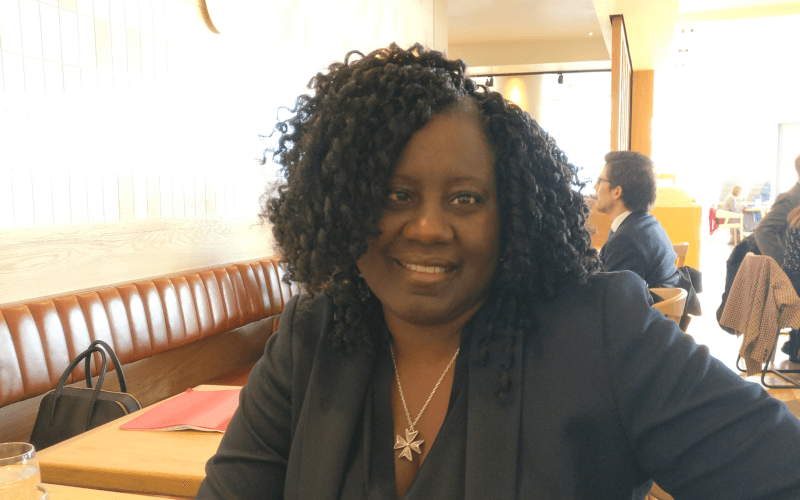Labour has insisted that its new leader’s decision to remove the party’s social care spokesperson from his first shadow cabinet does not mean the issue has been “demoted”.
The move came as Keir Starmer – who was elected this week with a victory that was variously described by the mainstream media as “stunning”, “resounding”, “commanding” and “a landslide” – announced his new shadow cabinet.
His shadow cabinet appointments included Rosena Allin-Khan as shadow minister for mental health, a role that was previously occupied by Barbara Keeley.
Keeley had also been shadow cabinet minister for social care, but Starmer announced no shadow cabinet replacement to take on the social care portfolio.
A Labour spokesperson said this was because the creation of a shadow cabinet role for Labour’s social care spokesperson had only been taken to pressure the government to take the issue more seriously.
That pressure pushed the government into renaming the Department of Health the Department of Health and Social Care, she said, which meant Labour now had a shadow secretary of state for health and social care, Jonathan Ashworth, in the shadow cabinet.
She said the decision to remove the party’s social care spokesperson from the shadow cabinet did not mean the issue was being “demoted”, but that Labour was “mirroring” the government’s DHSC ministerial roles.
She said: “Jon will be working a lot on social care. It is not a demotion at all. I have been assured of that. We have all been assured of that.”
In a social media post, Keeley suggested that she would not be continuing as shadow minister for social care, saying that Starmer was “moving ahead with a new team” and wishing them “the best with their work raising the challenges for our vital social care and Mental Health services”.
Meanwhile, there was a promotion for Marsha de Cordova, who was shadow minister for disabled people under Jeremy Corbyn and is one of only a handful of disabled MPs in parliament.
Starmer has appointed de Cordova as his new shadow secretary of state for women and equalities, a shadow cabinet role.
Following her appointment, many disabled people expressed concern that Starmer had not announced a successor to de Cordova.
But her previous post was not a shadow cabinet role, and the party is set to announce further shadow ministerial appointments in the coming days, although the spokesperson declined to confirm that Starmer would appoint a new shadow minister for disabled people.
Other key appointments by Starmer included Jonathan Reynolds as the new shadow work and pensions secretary, taking over the role from Margaret Greenwood.
Reynolds has been MP for Stalybridge and Hyde since 2010 and was previously shadow economic secretary to the Treasury.
Before he became an MP, he was a parliamentary assistant to the former Labour work and pensions secretary James Purnell, and later became a solicitor and local councillor, before succeeding Purnell as MP for Stalybridge and Hyde in 2010.
Alongside Starmer’s victory came the election of Angela Rayner as the party’s new deputy leader.
Disability News Service reported last month how Rayner was asking disabled members for their ideas on how to address the discrimination they face within the party.
She said she wanted to tackle these long-standing issues if she was elected as the new deputy leader.
She said last month: “It is important that disabled people’s voices are heard in politics, and if we are going to do that we need to start by looking at ourselves.
“We need to ensure that disabled people have full access, to ensure that there are no barriers for anyone.
“I want to start by taking an honest look at what we are doing and whether we are living up to our principles.”
Rayner herself has a British Sign Language level two qualification, and has two disabled children, as well as a disabled mother.
A note from the editor:
Please consider making a voluntary financial contribution to support the work of DNS and allow it to continue producing independent, carefully-researched news stories that focus on the lives and rights of disabled people and their user-led organisations.
Please do not contribute if you cannot afford to do so, and please note that DNS is not a charity. It is run and owned by disabled journalist John Pring and has been from its launch in April 2009.
Thank you for anything you can do to support the work of DNS…

 Urgent letter from UN to Labour government warns: We think your cuts continue Tory attack on disability rights
Urgent letter from UN to Labour government warns: We think your cuts continue Tory attack on disability rights ‘Complete shift in thinking’ needed on education of disabled children, says ALLFIE
‘Complete shift in thinking’ needed on education of disabled children, says ALLFIE Four disabled Labour MPs stand up to government over cuts to disability benefits
Four disabled Labour MPs stand up to government over cuts to disability benefits